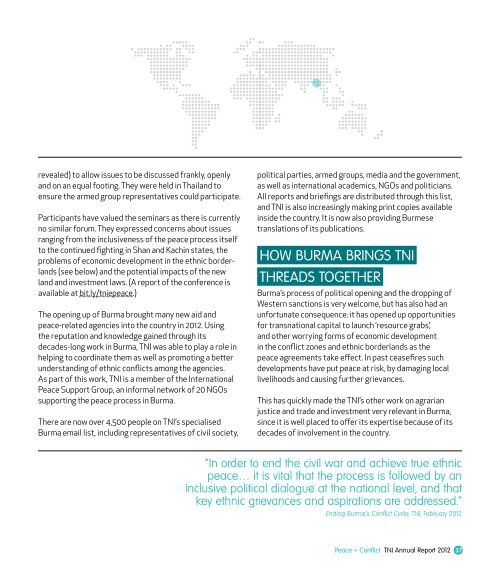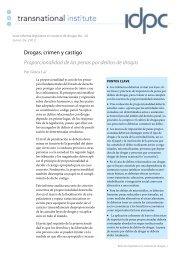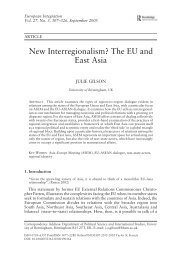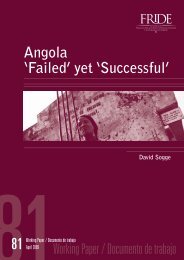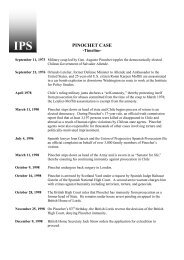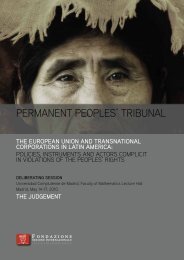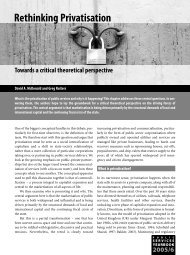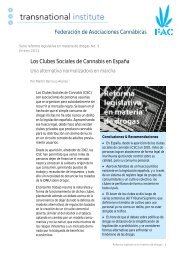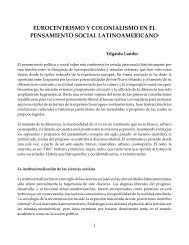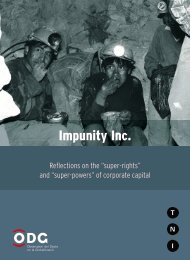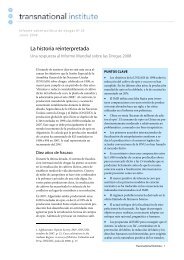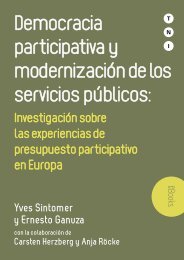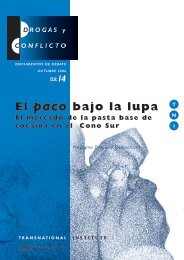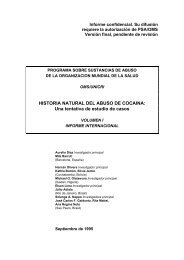Download Annual Report 2012 (pdf, 3.08 MB) - Transnational Institute
Download Annual Report 2012 (pdf, 3.08 MB) - Transnational Institute
Download Annual Report 2012 (pdf, 3.08 MB) - Transnational Institute
Create successful ePaper yourself
Turn your PDF publications into a flip-book with our unique Google optimized e-Paper software.
evealed) to allow issues to be discussed frankly, openlyand on an equal footing. They were held in Thailand toensure the armed group representatives could participate.Participants have valued the seminars as there is currentlyno similar forum. They expressed concerns about issuesranging from the inclusiveness of the peace process itselfto the continued fighting in Shan and Kachin states, theproblems of economic development in the ethnic borderlands(see below) and the potential impacts of the newland and investment laws. (A report of the conference isavailable at bit.ly/tniepeace.)The opening up of Burma brought many new aid andpeace-related agencies into the country in <strong>2012</strong>. Usingthe reputation and knowledge gained through itsdecades-long work in Burma, TNI was able to play a role inhelping to coordinate them as well as promoting a betterunderstanding of ethnic conflicts among the agencies.As part of this work, TNI is a member of the InternationalPeace Support Group, an informal network of 20 NGOssupporting the peace process in Burma.There are now over 4,500 people on TNI’s specialisedBurma email list, including representatives of civil society,political parties, armed groups, media and the government,as well as international academics, NGOs and politicians.All reports and briefings are distributed through this list,and TNI is also increasingly making print copies availableinside the country. It is now also providing Burmesetranslations of its publications..How Burma brings TNI..threads together.Burma’s process of political opening and the dropping ofWestern sanctions is very welcome, but has also had anunfortunate consequence: it has opened up opportunitiesfor transnational capital to launch ‘resource grabs’,and other worrying forms of economic developmentin the conflict zones and ethnic borderlands as thepeace agreements take effect. In past ceasefires suchdevelopments have put peace at risk, by damaging locallivelihoods and causing further grievances.This has quickly made the TNI’s other work on agrarianjustice and trade and investment very relevant in Burma,since it is well placed to offer its expertise because of itsdecades of involvement in the country.“In order to end the civil war and achieve true ethnicpeace… it is vital that the process is followed by aninclusive political dialogue at the national level, and thatkey ethnic grievances and aspirations are addressed.”Ending Burma’s Conflict Cycle, TNI, February <strong>2012</strong>Peace + Conflict tni <strong>Annual</strong> <strong>Report</strong> <strong>2012</strong> 37


